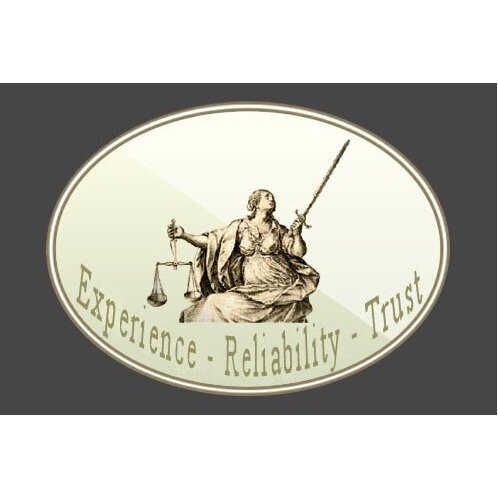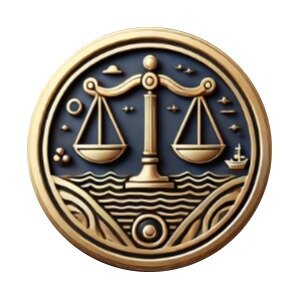Best Energy, Environment & ESG Lawyers in Pattaya
Share your needs with us, get contacted by law firms.
Free. Takes 2 min.
List of the best lawyers in Pattaya, Thailand
About Energy, Environment & ESG Law in Pattaya, Thailand
Energy, Environment & ESG (Environmental, Social, and Governance) law in Pattaya, Thailand, covers legal frameworks and regulations related to the use and management of natural resources, environmental protection, sustainable business operations, and social responsibility. As a growing city known for tourism, real estate, and industrial development, Pattaya faces unique challenges in balancing economic progress with environmental sustainability and responsible governance. Thai law mandates compliance with national, provincial, and local regulations focusing on energy consumption, pollution control, waste management, land use, and corporate transparency in ESG matters.
Why You May Need a Lawyer
Legal assistance in the area of Energy, Environment & ESG in Pattaya may become necessary due to the complexity of local and national laws as well as the need to navigate licensing procedures, compliance obligations, and dispute resolution. Common scenarios include proposing a new real estate or industrial development, encountering environmental complaints or sanctions, facing allegations of pollution, or addressing requirements for corporate ESG disclosures and due diligence. Individuals and businesses may also require support in renewable energy projects, waste management agreements, and ensuring real estate purchases meet environmental standards. A knowledgeable lawyer can help interpret the law, manage compliance, represent clients before authorities, and mitigate risk.
Local Laws Overview
Key laws relevant to Energy, Environment & ESG in Pattaya include the Enhancement and Conservation of National Environmental Quality Act (NEQA), Factory Act, Public Health Act, Energy Industry Act, and various city zoning and development ordinances. Developers and businesses must comply with environmental impact assessment (EIA) requirements for certain projects, follow waste and hazardous substance regulations, manage energy consumption, and maintain social governance standards. The Thai government actively enforces environmental protection, particularly in areas where tourism or coastal conservation is a priority. Non-compliance can result in fines, project delays, or even criminal charges.
Frequently Asked Questions
What is an Environmental Impact Assessment (EIA) and when is it required?
An EIA is a mandatory review for specific development projects likely to significantly affect the environment. In Pattaya, this typically applies to large-scale projects such as hotels, condominiums, factories, or infrastructure developments. The EIA process evaluates potential environmental impacts and proposes mitigation measures.
What are the main government agencies overseeing environmental protection?
Key agencies include the Ministry of Natural Resources and Environment, Pattaya City Hall’s Environmental Office, the Department of Industrial Works, and the local Pattaya Municipal Office. These agencies administer and enforce various environmental and energy-related laws.
Are there specific rules for waste management in Pattaya?
Yes, businesses and residents must follow municipal regulations on sorting, collecting, and disposing of waste. Hazardous and industrial waste are regulated under stricter national laws and require special handling and disposal practices.
How does Thailand’s ESG framework affect businesses in Pattaya?
Businesses are increasingly expected to demonstrate ESG compliance through transparent reporting, environmental responsibility, social impact management, and sound governance. Some sectors, especially listed companies and those seeking international investment, have specific reporting obligations under Thai law and industry codes.
Can foreign investors own or operate renewable energy projects in Pattaya?
Yes, subject to national investment laws and regulations. Foreign investors often partner with Thai companies and must obtain appropriate licenses from the Energy Regulatory Commission and other relevant agencies.
What are the common environmental violations and penalties?
Violations include illegal dumping, excessive noise or emissions, unauthorized construction, pollution of waterways, and non-compliance with EIAs. Penalties can involve fines, suspension of operations, and in severe cases, criminal proceedings.
Does Pattaya have any special coastal or marine protection laws?
Yes, as a coastal city, Pattaya follows national laws and specific local ordinances designed to protect its beaches, marine environment, and water quality, impacting coastal developments and tourist-related projects.
What should I do if I receive an environmental complaint from authorities?
Engage with a lawyer to review the complaint, assist with responding, and ensure compliance. Legal professionals can help communicate with authorities and minimize potential penalties.
Are there incentives for adopting green energy in Pattaya?
Thailand offers various incentives, such as tax reductions and support programs, for projects adopting renewable energy solutions. These may apply to solar, wind, and waste-to-energy initiatives, subject to approval.
Where can businesses learn more about maintaining ESG compliance?
Businesses can consult with professional advisors, attend workshops by government and industry groups, and review publications from Thai authorities that provide guidance on ESG standards and best practices.
Additional Resources
- Ministry of Natural Resources and Environment: Provides information on environmental laws, EIA requirements, and conservation policies. - Energy Regulatory Commission of Thailand: Offers guidance for energy licenses, renewable energy projects, and regulatory updates. - Pattaya City Hall Environmental Office: Handles local compliance, pollution control, and waste management information. - Board of Investment (BOI): Advises on investment incentives, including renewable and ESG-related projects. - Thailand Environmental Institute: Conducts research and provides educational resources on ESG topics.
Next Steps
If you or your business need legal assistance in Energy, Environment & ESG in Pattaya, start by clearly identifying your issue or project. Gather all relevant documents, plans, and correspondences. Contact a reputable local law firm or legal advisor experienced in these areas. Prepare to discuss your objectives, ask about their experience with similar matters, and review their proposed approach and fees. Timely legal advice can save costs, streamline approvals, and ensure strong compliance, minimizing the risk of future disputes or sanctions.
Lawzana helps you find the best lawyers and law firms in Pattaya through a curated and pre-screened list of qualified legal professionals. Our platform offers rankings and detailed profiles of attorneys and law firms, allowing you to compare based on practice areas, including Energy, Environment & ESG, experience, and client feedback.
Each profile includes a description of the firm's areas of practice, client reviews, team members and partners, year of establishment, spoken languages, office locations, contact information, social media presence, and any published articles or resources. Most firms on our platform speak English and are experienced in both local and international legal matters.
Get a quote from top-rated law firms in Pattaya, Thailand — quickly, securely, and without unnecessary hassle.
Disclaimer:
The information provided on this page is for general informational purposes only and does not constitute legal advice. While we strive to ensure the accuracy and relevance of the content, legal information may change over time, and interpretations of the law can vary. You should always consult with a qualified legal professional for advice specific to your situation.
We disclaim all liability for actions taken or not taken based on the content of this page. If you believe any information is incorrect or outdated, please contact us, and we will review and update it where appropriate.
Browse energy, environment & esg law firms by service in Pattaya, Thailand
Pattaya, Thailand Attorneys in related practice areas.















